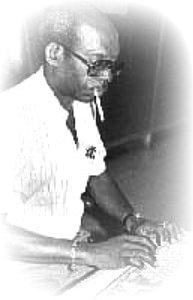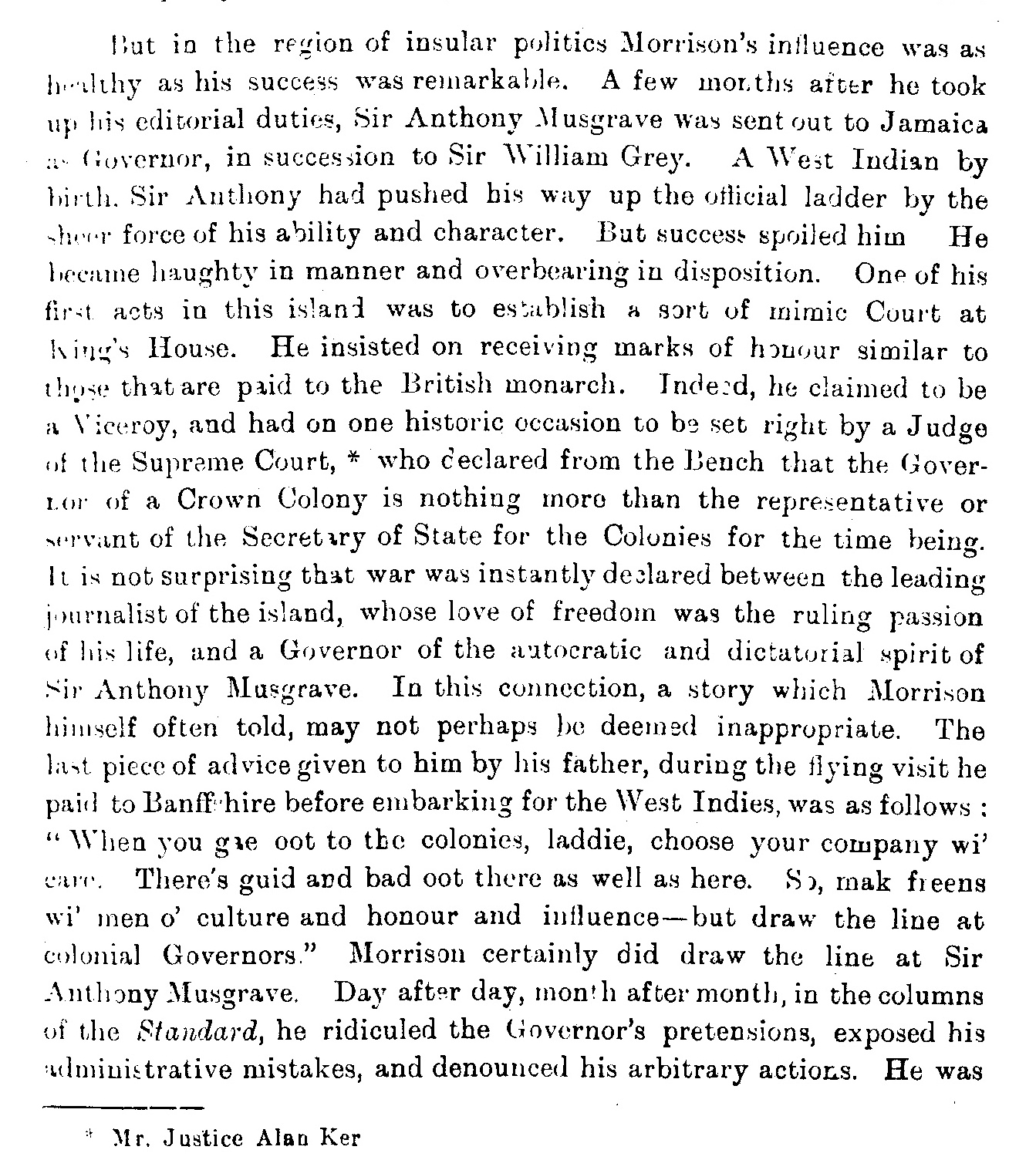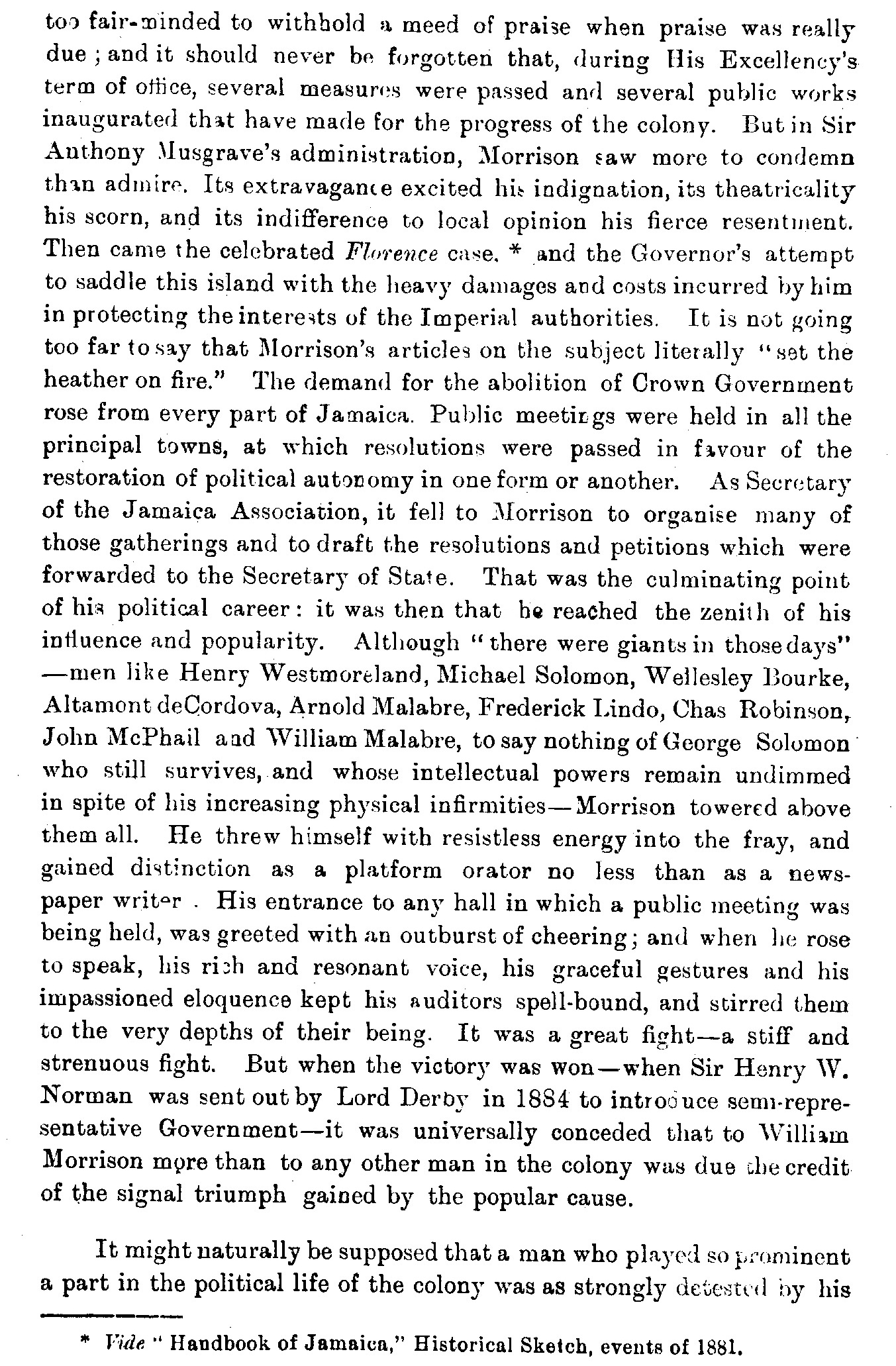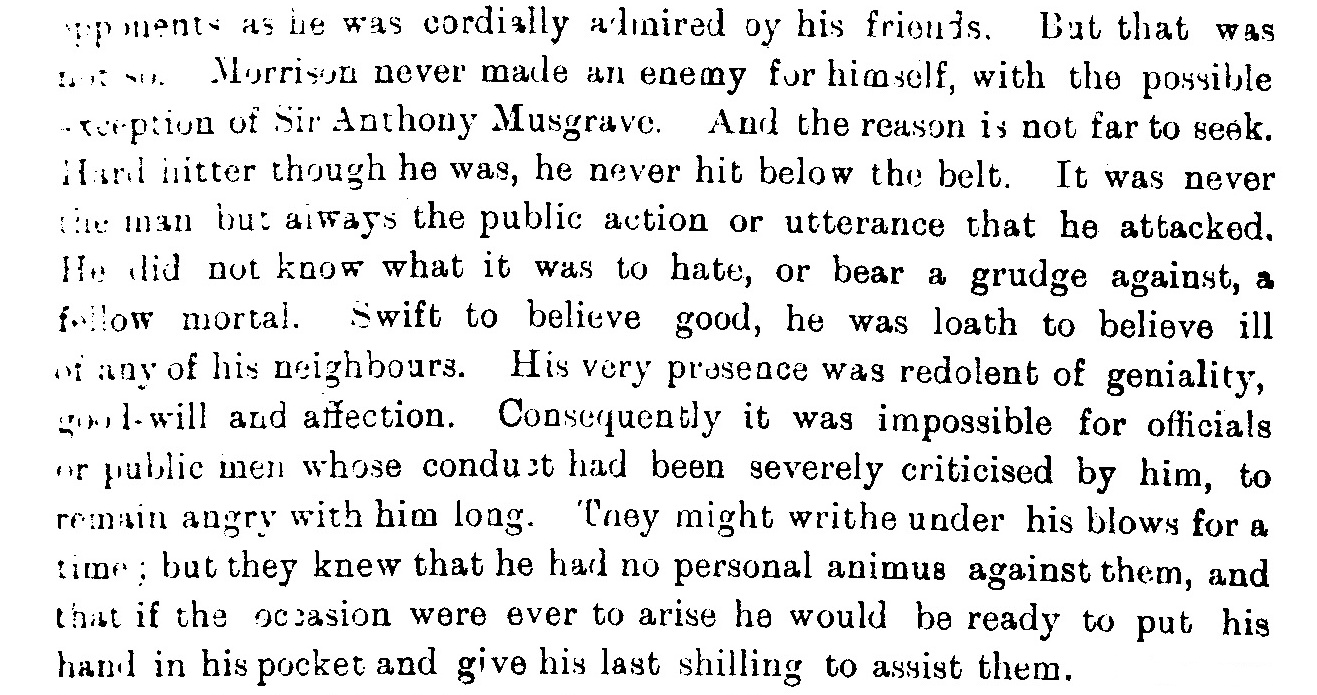Musgrave: a West Indian Stalwart
 By
CARL WINT
By
CARL WINT
LAST
Thursday author and radio commentator Peter
Abrahams in a Musgrave Medals presentation
ceremony at the Institute of Jamaica's
Lecture Theatre, East Street, Kingston, called for a
renaming of the names of the
medal. Himself a gold-medal awardee for his
work in literature and
journalism, Mr.
Abrahams argued that, with the Institute of
Jamaica being a focal point for the.
promotion and preservation of culture, its
highest award ought not to be named
after someone who
represented colonialism and
its attendant negative features.
These
are curious words indeed coming from
an awardee, no less. This is the same
Peter
Abrahams who readily admits in the
same acceptance speech 'that Sir Anthony
Musgrave, the
19th-century Governor of Jamaica,
after whom the medals are named, was
deserving of praise, and
that his memory
should be held in high esteem because
of his significant accomplishments in social
life and culture, including his founding of
the Institute of Jamaica in 1879.'
According
to the report carried in this newspaper
last Friday the Institute's chairman, Sonia
Jones,
promised that the organisation would
give due consideration to the recommendation.
It is to be
hoped that she was
merely being polite. Let the name of
the medals remain Musgrave.
Sir
Anthony Musgrave is first of all a West
Indian, having been born in Antigua in
1828, the third son
of Dr. Anthony
Musgrave. At the age of 22, in 1850
young Musgrave became Private Secretary to
the Governor of the Leeward Islands, leaving
a year later to study law in
England.
Those
studies were interrupted as he had to
return to Antigua on the death of his
father. In the wake
of that loss
he acted as Treasurer Accountant for about
year, resuming his law studies in
England in
1853. While studying, he applied
to become Colonial Secretary of Antigua. In
1860 he was
appointed Administrator of
Nevis, and two years later was made
Lieutenant Governor of St. Vincent.
So
successful was he at resolving, some of
the seemingly intractable problems of that
island that he
was promoted and assigned
by the British Colonial Office to
Newfoundland. Subsequently he
became Governor of
British Colombia. Musgrave became a partial
cripple, and was to endure much
pain in
the years ahead, but that did riot
prevent him being assigned to South
Australia. It was a
short stint, because
he was quickly appointed Governor of Jamaica
in 1877.
The
relevant Handbooks of Jamaica note that
during his six years as Governor he
worked 'tirelessly and with great sincerity
for the improvement of Jamaica, particularly in the fields of the Arts and
Education.' He was instrumental in
establishing the electric telegraph, coastal
steamship service,
purchase and expansion of
the Jamaica Railway Company, re-organisation of
the island's
Botanical Department, providing for
and preserving the island's records, establishing
the Jamaica
Scholarship and of course
establishing the Institute of Jamaica. Failing
health caused him to give up
his responsibilities despite petitions to the
Secretary of State to prolong his
administration.
In
1889 the Rev. John Radcliffe, a member
of the Institute's Board, proposed the
establishment of the
Musgrave Medal, 'as
a lasting tribute and memorial' to Sir
Anthony Musgrave.
Like
it or not, colonialism, like slavery, was
a fact of life in this country. It
has touched all our lives, and
affected
us in one way or another. Anthony
Musgrave was a part of the colonial
milieu, but from what
we know, he was
an enlightened player.
The
Institute of Jamaica which he founded has
impacted on the lives of Jamaicans,
thousands of
Jamaicans, in a positive
manner, and the Institute continues to
provide a cultural resonance in this
country
which is not duplicated anywhere else.
We
do not need to change for the sake
of change. It would be shortsighted and
wrong to visit on the
long-departed Anthony
Musgrave the baser aspects of colonialism.
The Musgrave Medals are highly
regarded in
this country, because they are not scattered
about like rice at a wedding or
confetti at a
ticker tape parade
If
Mr. Abrahams had a problem with the
name Musgrave he should have refused the medal. That he did not indicates that
he has no strong feeling on the
matter. It was unfortunate therefore that he should
have sought to initiate a name
change. The board should not countenance
such a suggestion. Let the
Musgrave Medals
continue to carry the prestige they have
been carrying all these years. We cannot
escape our history, and there is no
need for us to apologise for it.
Carl Wint is an associate editor of The Gleaner.
probably William Morrison's least favourite person, as described in this section
of Guy's biographical essay.


